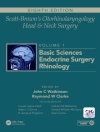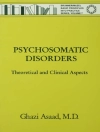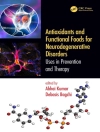The ultimate guide and surgical manual for managing patients with rigid spinal deformities
Despite attempts to detect and treat spine deformities early in younger and older populations, spine deformity surgeons encounter a wide array of complex spine pathologies in patients across the age and pathology continuum. Corrective Osteotomies of Rigid Spinal Deformities, edited by world-renowned spinal deformity specialists Leon Kaplan and Lawrence G. Lenke, features contributions from an impressive group of global experts. The superbly written compendium highlights inherent challenges of managing rigid spine deformities and provides a wide array of safe and optimal treatment solutions.
Thirty-four chapters encompass surgical and nonsurgical management strategies for congenital, neuromuscular, syndrome-associated, infection, and neoplasm-related rigid spinal deformities. Special topics include secondary correction, pitfalls and difficulties, revision surgeries, and surgical and trauma-related neurological complications. New technologies are covered, including computer-assisted robotic surgery, evaluation and treatment of spinal tuberculosis in adults and children, and biological aspects that enhance spinal fusion. Throughout the text, the authors share firsthand pearls gained over many decades of delivering surgical care.
Key Highlights
- The rational, decision-making, meticulous planning, surgical strategies, and outcomes presented for each type of spinal deformity reflect the authors’ extensive clinical and surgical experience
- Step-by-step methodology for treating rigid spinal deformities, including anterior, posterior, and combined approaches
- Anesthesiological aspects of spine correction in different stages of surgery and the importance of spinal neuromonitoring
- Reader-friendly algorithms, full color photographs, and radiographic images enhance the understanding of underlying pathologies and treatment strategies
This is an indispensable diagnostic and surgical manual for advanced spine surgeons who specialize in correcting rigid spinal deformities in pediatric and adult patients. Spine surgery residents and fellows will also benefit from reading this comprehensive resource.
Spis treści
1 Congenital Spinal Deformities
2 Neuromuscular Spinal Deformities
3 Idiopathic Spinal Deformities Treated with Spinal Osteotomies
4 The Natural History of Rigid Spinal Deformities
5 Surgical Management of Children with Congenital Deformities of the Upper Thoracic Spine and Vertebral Malformations
6 Osteotomies in Children under the Age of 10 Years
7 Surgical Treatment of Rigid Spinal Deformities in Patients with Thoracic Insufficiency Syndrome
8 Vertebral Column Resection as a Treatment for Neurologic Deficit in Severe Spinal Deformity
9 Osteotomies in Syndromic Patients
10 Rigid Spine Deformities in Early-Onset Scoliosis
11 Secondary Correction of Rigid Spinal Deformity after Failed Instrumentation
12 Kyphectomy in Patients with Myelomeningocele
13 Pitfalls and Difficulties in the Surgical Management of Severe Adolescent Idiopathic Scoliosis
14 Posttraumatic Spine Deformity
15 Osteoporotic Rigid Spinal Deformities
16 Spinal Deformities in Patients with Parkinson’s Disease
17 Surgical Planning for En Bloc Resection of Spinal Tumors: Tailoring the Osteotomy to Tumor Extensions
18 Corrective Osteotomies in the Cervical Spine
19 Junctional Corrective Osteotomies (Cervicothoracic, Thoracolumbar, Lumbosacral)
20 Corrective Strategies and Management of Rigid Sacropelvic Pathologies
21 Ankylosing Spinal Disorders
22 Osteotomies in Revision Surgery
23 Classification and Definition of Rigid Spine Deformity
24 Strategies in the Correction of Rigid Spinal Deformities—Controversies between Anterior and Posterior Approach
25 Anesthesia for Spinal Surgery
26 Neuromonitoring in Rigid Spine Deformity Correction
27 Neurological Complications after Surgery or Trauma to the Rigid Spine
28 Importance of the Sagittal Balance in Correction of Rigid Spine
29 Robot-Guided Surgery in Rigid Spinal Deformities
30 Biological Aspects of Spine Fusion—Methods to Enhance Fusion Rates
31 Role of Anterior Approach in the Correction of Adult Spinal Deformities
32 Osteotomies in Spinal Tuberculosis—Adult Care
33 Osteotomies in Tuberculosis—Pediatric Care
34 Osteotomies for Adult Degenerative Scoliosis












